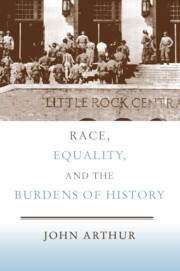7 - Merit and Race
Published online by Cambridge University Press: 03 December 2009
Summary
the phrase “affirmative action” came to public use in 1961 when President John Kennedy issued Executive Order 10925 requiring that contractors working for the federal government take “affirmative action to ensure that applicants are hired without regard to their race, creed, color, or national origin.” That original meaning evolved, however. In 1965, President Johnson's Secretary of Labor issued affirmative action guidelines for federal contractors that included “goals” as well as “timetables” for increasing minority employment. Although it is rare to find an explicit quota today, affirmative action, as currently understood, requires more than making certain that minorities are recruited and that there is no discrimination or bias on the part of those making the decisions. Affirmative action today refers to policies and individual decisions in which a person's race is used as a reason to justify employment in a position, an award of a contract, or admission to an institution. It is distinguished from ordinary racial discrimination because its goal is to help minorities or otherwise disadvantaged groups.
Affirmative action raises a host of important and controversial questions, which I take up in this chapter and in Chapter 8. At the root of many objections to affirmative action is the claim that it entails disregard of merit, which is the focus of this chapter. First, I will consider the nature of merit: what it is, and why it matters.
- Type
- Chapter
- Information
- Race, Equality, and the Burdens of History , pp. 228 - 255Publisher: Cambridge University PressPrint publication year: 2007

